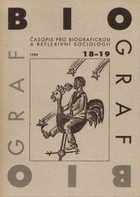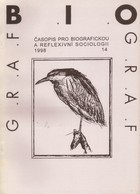Publikace, nahrávky a jiné výstupy
Přehled toho, co jsem napsal a zveřejnil (jako sociolog) nebo nahrál a vydal (jako muzikant). Prostě veřejně dostupné "výstupy". V případě, že je to právně a technicky možné, postupně sem dávám k dispozici i plné texty a do příslušných oddílů hudební sekce pak i nějaké hudební ukázky ve formátu mp3.
KONOPÁSEK, Z. (1999): V čem spočívá "pravda" opoziční smlouvy? 2 s. [Nepublikovaný rukopis článku pro noviny]
::::V tomto nikdy nevydaném krátkém textu pro noviny rozebírám tzv. Opoziční smlouvu mezi ODS a ČSSD z let 1998-2002 (viz http://cs.wikipedia.org/wiki/Opoziční_smlouva). V duchu teorie-sítí aktérů rozbíjím představu této smlouvy jako nějakého hotového textu, který určil politickou atmosféru v zemi. Upozorňuji také na falešnou představu, že problém je v tom, že toho o dělané politice víme příliš málo; je to myslím naopak. Tváří v tvář mediální vševědoucnosti (na jejímž vytváření se politici sami podílejí) je podle mne nesmírně obtížné nejen uspět, ale i selhat. Udělali jsme si o Opoziční smlouvě určitý obraz a tím poměřujeme vše, co se jí týká. Nebereme pak opravdu vážně, co jednotliví aktéři teď a tady říkají nebo dělají. "Pravdu" opoziční smlouvy spatřujeme v papíru, co kdysi podepsalo několik straníků, a nikoli v myriádách provizorních a lokálních realizací (přepisů, překladů) toho textu.

KONOPÁSEK, Z. (1999): Od Černé knihy k černé skříňce: komunismus relativizujícíma očima. Biograf (18-19): 3-24
(18-19): 3-24
::::This paper proposes a sociology of state socialism. It does so by discussing the place of state socialism within the debates on modernity and postmodernity and reassessing the possibilities of so-called biographical research in the field of post-communist studies. The paper also outlines a theoretical and analytical framework for making the communists[a] power problematic from a sociological point of view. Such a perspective suggests that the power of the communists is not taken - explicitly or implicitly - as something that naturally explains the logic of life under the communist regime; on the contrary, it is presented as something that needs to be explained. As such, this approach is inspired by contemporary sociology of science, particularly by the work of Bruno Latour. In doing so, the paper hopes to achieve one important side-effect, namely to (re)establish the phenomena of state socialism as a topic worthy of general sociological attention.

KONOPÁSEK, Z. (1999): Úvod k pěti studiím o auto/biografiích. In: Z. Konopásek, ed.: Otevřená minulost: autobiografická sociologie státního socialismu. Praha: Karolinum. Str. 53-56
::::

KONOPÁSEK, Z. (1999): Reflexivní autobiografie: interpretací post/komunistického Východu k porozumění post/modernímu Západu. In: Z. Konopásek, ed.: Otevřená minulost: autobiografická sociologie státního socialismu. Praha: Karolinum. Str. 353-369
::::

KONOPÁSEK, Z. (1999): Sociologie babičkou (po dvou letech). In: Z. Konopásek, ed.: Otevřená minulost: autobiografická sociologie státního socialismu. Praha: Karolinum. Str. 217-251
::::

KONOPÁSEK, Z. (1999): SAMISEBE: Pootevírání minulosti. In: Z. Konopásek, ed.: Otevřená minulost: autobiografická sociologie státního socialismu. Praha: Karolinum. Str. 7-19
::::

KONOPÁSEK, Z., ed. (1999): Otevřená minulost: autobiografická sociologie státního socialismu. Praha: Karolinum. 373 s.
::::

KONOPÁSEK, Z. (1999): Co je SAMISEBE? In: Z. Konopásek, ed.: Otevřená minulost: autobiografická sociologie státního socialismu. Praha: Karolinum. Str. 23-50
::::

DISMAN, M. / KONOPÁSEK, Z. (1999): Úvod k biografickým úryvkům SAMISEBE. In: Z. Konopásek, ed.: Otevřená minulost: autobiografická sociologie státního socialismu. Praha: Karolinum. Str. 255-257
::::

KONOPÁSEK, Z. (1998): Staré ortodoxie, nové ortodoxie: kvalitativní výzkum na prahu příštího století (review). Biograf , (14): 63-75
, (14): 63-75
::::Recenze knihy: DENZIN, N.K. (1997): Interpretive ethnography: Ethnographic practices for the 21st century. Thousand Oaks: Sage. 325 s. ISBN 0-8039-7299-7





